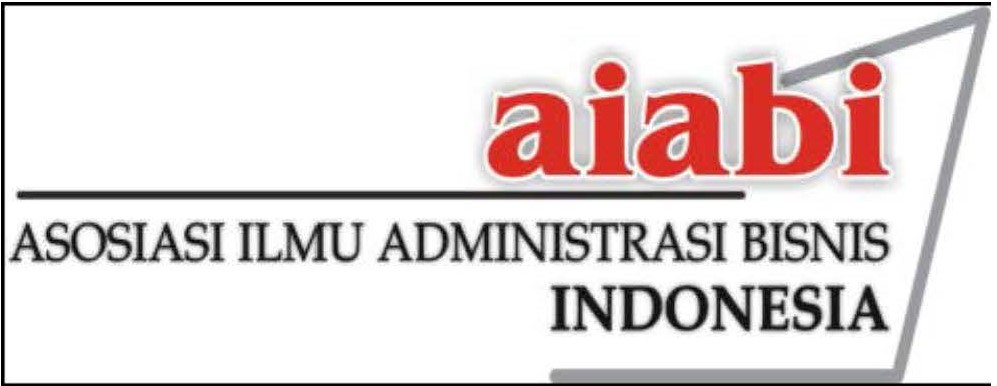EKSPLANASI INTENSI MENJADI SOCIAL ENTREPRENEUR MELALUI PENDIDIKAN KEWIRAUSAHAAN SOSIAL
Abstrak
Social entrepreneurial intention towards social entrepreneurship education needs to be explained through research. This research discussed the social entrepreneurial intention of the Atma Jaya Catholic University of Indonesia students through social entrepreneurship education. This research uses a quantitative method with a survey approach. In addition, Smart of Partial Least Squares Structural Equation Modeling uses to process the data. These findings show the model's suit suitability standard. There is a positive and significant relationship between an individual's interest in social entrepreneurial intention and social entrepreneurship education. Moral obligation has a positive and significant influence on social entrepreneurial intention but negatively affects social entrepreneurship education. Religion, ideology, and cultural norms positively and significantly influence social entrepreneurship education but negatively affect social entrepreneurial intention. Self-efficacy also positively and significantly influences entrepreneurship education but negatively affects social entrepreneurial intention. Family and social support positively and significantly affect social entrepreneurship education but negatively affect social entrepreneurial intention. Meanwhile, there is no relationship between social entrepreneurship education and social entrepreneurial intention.
Intensi menjadi wirausaha sosial melalui pendidikan kewirausahaan sosial perlu dijelaskan secara mendalam. Tujuan penelitian ini ialah eksplanasi intensi mahasiswa Universitas Katolik Indonesia Atma Jaya menjadi social entrepreneur melalui pendidikan kewirausahaan sosial. Metode yang digunakan ialah kuantitatif dengan pendekatan survei. Pengolahan data penelitian ini menggunakan Smart of Partial Least Squeares Structureal Equation Modeling (Smart PLS-SEM). Hasil penelitian ini menunjukkan bahwa model yang dikonstruksi sudah memenuhi standar kesesuaian model. Terdapat pengaruh yang positif dan signifikan antara ketertarikan individu terhadap intensi menjadi wirausaha sosial dan pendidikan kewirausahaan. Disisi lain, obligasi moral memiliki pengaruh positif dan signifikan terhadap intensi menjadi wirausaha sosial tetapi berpengaruh negatif terhadap pendidikan kewirausahaan sosial. Demikian halnya agama, ideologi, serta norma budaya memiliki pengaruh positif dan signifikan terhadap pendidikan kewirausahaan sosial tetapi berpengaruh negatif terhadap intensi menjadi wirausaha sosial. Efikasi diri juga memilik pengaruh positif dan signifikan terhadap pendidikan kewirausahaan sosial tetapi berpengaruh negatif terhadap intensi menjadi wirausaha sosial. Dukungan keluarga dan sosial berpengaruh positif dan signifikan terhadap pendidikan kewirausahaan sosial tetapi berpengaruh negatif terhadap intensi menjadi wirausaha sosial. Sementara itu, tidak ada pengaruh antara pendidikan kewirausahaan sosial dengan intensi menjadi wirausaha sosial.
Kata Kunci
Teks Lengkap:
PDFReferensi
Adebusuyi, A. S., & Adebusuyi, O. F. (2020). The influence of social class on entrepreneurial self-efficacy and outcome expectations. Small Enterprise Research, 27(3), 259–274. https://doi.org/10.1080/13215906.2020.1844044
Alsaad, A., Saif-Alyousfi, A. Y. H., & Elrehail, H. (2021). Religiosity, idealism, and ethical consumption: the mediating effect of perceived customer effectiveness and moral obligation. Journal of Social Marketing, 11(1), 25–43. https://doi.org/10.1108/JSOCM-07-2020-0116
Andriani, I. A., & Dewi, R. M. (2022). Praktik Pembelajaran Kewirausahaan dan Pemanfaatan Media Sosial Terhadap Pembentukan Wirausaha Muda pada Siswa SMA. Jurnal Pendidikan : Riset & Konseptual, 6(3), 457–465.
Anggadwita, G., Ramadhanti, N., & Ghina, A. (2022). Pengaruh Persepsi Sosial Dan Orientasi Kewirausahaan Terhadap Niat Wirausaha Wanita Di Bandung. AdBispreneur, 6(3), 269. https://doi.org/10.24198/adbispreneur.v6i3.35063
Arend, R. J. (2021). Modelling Social Entrepreneurship: Consideration of the Reacting Forces. Journal of Social Entrepreneurship, 12(3), 399–416. https://doi.org/10.1080/19420676.2020.1718744
Ashraf, M. A. (2021). Determinants of Islamic entrepreneurial intentions: an analysis using SEM. Journal of Islamic Marketing, 12(1), 20–40. https://doi.org/10.1108/JIMA-05-2019-0116
Au, W. C., Drencheva, A., & Yew, J. L. (2021). Narrating Career in Social Entrepreneurship: Experiences of Social Entrepreneurs. Journal of Social Entrepreneurship, 0(0), 1–27. https://doi.org/10.1080/19420676.2021.1890188
Bargsted, M., Picon, M., Salazar, A., & Rojas, Y. (2013). Psychosocial Characterization of Social Entrepreneurs: A Comparative Study. Journal of Social Entrepreneurship, 4(3), 331–346. https://doi.org/10.1080/19420676.2013.820780
Cahyono, H. (2019). Membangun Entrepreneurial Intentions Mahasiswa Melalui Pendidikan Kewirausahaan; Sebagai Upaya Menghadapi Masyarakat Ekonomi ASEAN “MEA.” Ri’ayah, 1(1), 66–67.
Chandra, Y., & Kerlin, J. A. (2021). Social entrepreneurship in context: pathways for new contributions in the field. Journal of Asian Public Policy, 14(2), 135–151. https://doi.org/10.1080/17516234.2020.1845472
Choi, J., Kim, K., Marjerison, R., Jeong, B. G., Lee, S., & Vaccaro, V. (2021). The Effects of Morality and Positivity on Social Entrepreneurial Intention. Journal of Social Entrepreneurship, 0(0), 1–21. https://doi.org/10.1080/19420676.2021.1942960
Cholida, D., Wahyuni, S., & Widodo, J. (2020). Strategi Transformasi Nilai Kewirausahaan Di Pondok Pesantren Mabadi’Ul Ihsan Kabupaten Banyuwangi. JURNAL PENDIDIKAN EKONOMI: Jurnal Ilmiah Ilmu Pendidikan, Ilmu Ekonomi Dan Ilmu Sosial, 14(1), 201–207. https://doi.org/10.19184/jpe.v14i1.12035
Christopoulos, D., & Vogl, S. (2015). The Motivation of Social Entrepreneurs: The Roles, Agendas and Relations of Altruistic Economic Actors. Journal of Social Entrepreneurship, 6(1), 1–30. https://doi.org/10.1080/19420676.2014.954254
Darmawan, I. M. Y., & Warmika, I. G. K. (2016). Pengaruh Norma Subjektif, Personal Attitude, Perceived Behavior Control, Dan Aspek Psikologis Terhadap Minat Wirausaha (Entrepreneurial Intention). E-Jurnal Manajemen Universitas Udayana, 5(7), 4660–4689.
de Bruin, A., Shaw, E., & Lewis, K. V. (2017). The collaborative dynamic in social entrepreneurship. Entrepreneurship and Regional Development, 29(7–8), 575–585. https://doi.org/10.1080/08985626.2017.1328902
Diapati, M. M. (2019). Pengaruh Pendidikan Kewirausahaan, Lingkungan Sosial Dan Keluarga, Ekspektasi Pendapatan Dan Kekuatan Mental Terhadap Minat Berwirausaha Pada Mahasiswa Sekolah Tinggi Ilmu Ekonomi (Stie Panca Bhakti Palu). Wacana Equiliberium (Jurnal Pemikiran Penelitian Ekonomi), 7(2), 21–30. https://doi.org/10.31102/equilibrium.7.2.21-30
Ekawarna, E., Denmar, D., & Bakar, M. (2022). Pengaruh Pendidikan Kewirausahaan, Efikasi Diri dan Motivasi Berwirausaha terhadap Niat Berwirausaha Mahasiswa FKIP Universitas Jambi Angkatan 2019. Jurnal Manajemen Pendidikan Dan Ilmu Sosial, 3(1), 139–149.
Garaika. (2020a). Determinants of the social entrepreneurial intention of young entrepreneurs in Indonesia. International Journal of Innovation, Creativity and Change, 12(3), 356–373.
Garaika. (2020b). The impact of empathy, social support, and moral obligation on social entrepreneur intention. International Journal of Scientific and Technology Research, 9(3), 5788–5792.
Germak, A. J., & Robinson, J. A. (2014). Exploring the Motivation of Nascent Social Entrepreneurs. Journal of Social Entrepreneurship, 5(1), 5–21. https://doi.org/10.1080/19420676.2013.820781
Hariyanti, D., Santosa, B., Susworo, Y., Mahdawi, & Putri, A. N. (2022). Pendidikan dan Pelatihan Bagi Calon Wirausaha di Sekolah Kewirausahaan Bina Amanah Cordova. Jurnal Pengabdian Masyarakat Akademisi, 1(3), 91–95.
Hartati, A. S., Warsiki, C. Y. ., Kusmantini, T., & Diantoro, A. K. (2022). Social Entrepreneurial Intentions: An Empirical Study at Ponpes Darul Qur’am. Pinisi Discretion Review, 5(2), 361–368.
Hartono, B., & Siregar, M. (2022). Konsep Integrasi Pendidikan Islam dan Kewirausahaan dalam Meningkatkan Kesejahteraan Masyarakat. Edukasi Islami: Jurnal Pendidikan Islam, 11(2), 377–398. https://doi.org/10.30868/ei.v11i02.2210
Hidalgo, G., Monticelli, J. M., & Vargas Bortolaso, I. (2021). Social Capital as a Driver of Social Entrepreneurship. Journal of Social Entrepreneurship, 0(0), 1–24. https://doi.org/10.1080/19420676.2021.1951819
Hockerts, K. (2015). The Social Entrepreneurial Antecedents Scale (SEAS): a validation study. Social Enterprise Journal, 11(3), 260–280. https://doi.org/10.1108/sej-05-2014-0026
Hockerts, K. (2017). Determinants of Social Entrepreneurial Intentions. Entrepreneurship: Theory and Practice, 41(1), 105–130. https://doi.org/10.1111/etap.12171
Hossain, M. U., Arefin, M. S., & Yukongdi, V. (2021). Personality Traits, Social Self-Efficacy, Social Support, and Social Entrepreneurial Intention: The Moderating Role of Gender. Journal of Social Entrepreneurship, 0(0), 1–21. https://doi.org/10.1080/19420676.2021.1936614
Iancu, A., Popescu, L., & Popescu, V. (2021). Factors influencing social entrepreneurship intentions in Romania. Economic Research-Ekonomska Istrazivanja , 34(1), 1190–1201. https://doi.org/10.1080/1331677X.2020.1820358
Idris, A., & Hati, R. H. (2013). Social Entrepreneurship in Indonesia: Lessons from the Past. Journal of Social Entrepreneurship, 4(3), 277–301. https://doi.org/10.1080/19420676.2013.820778
Ika, D. A., Fitriana, S., & Setiawan, A. (2018). Faktor-Faktor Yang Mempengaruhi Rendahnya Minat Kewirausahaan Siswa Kelas Xi Di Smk Texmaco Pemalang. Empati-Jurnal Bimbingan Dan Konseling, 5(1), 47–55.
Ip, C. Y., Wu, S.-C., Liu, H.-C., & Liang, C. (2017). Revisiting the Antecedents of Social Entrepreneurial Intentions in Hong Kong. International Journal of Educational Psychology, 6(3), 301. https://doi.org/10.17583/ijep.2017.2835
Irmawita, R. G., & Sadli, G. N. (2021). Digital Press Social Sciences and Humanities Student Development through Social Entrepreneurship Program. Digital Press Social Sciences and Humanities, 7(7), 1–7. https://scholar.archive.org/work/pus52bsuefevbcfos4lknsrvji/access/wayback/https://digitalpress.ugm.ac.id/article/397/download?pdf
Irwan, & Adam, K. (2015). Metode Partial Least Square (PLS) dan terapannya (Studi Kasus: Analisis Kepuasan Pelanggan terhadap Layanan PDAM Unit Camming Kab. Bone). Jurnal Teknosains, 9(1), 53–68.
Jilinskaya-Pandey, M., & Wade, J. (2019). Social Entrepreneur Quotient: An International Perspective on Social Entrepreneur Personalities. Journal of Social Entrepreneurship, 10(3), 265–287. https://doi.org/10.1080/19420676.2018.1541013
Kamaludin, M. F., Xavier, J. A., & Amin, M. (2021). Social Entrepreneurship and Sustainability: A Conceptual Framework. Journal of Social Entrepreneurship, 0(0), 1–24. https://doi.org/10.1080/19420676.2021.1900339
Kempa, S., & Bilviary, A. (2022). Studi Entrepreneurial Intention Pada Mahasiswa Di Maluku. Jurnal Ekonomi Pendidikan Dan Kewirausahaan, 10(1), 5–18. https://doi.org/10.26740/jepk.v10n1.p5-18
Kimura, O. N., & Masykur, A. M. (2017). Hubungan Antara Dukungan Sosial Orangtua Dengan Kewirausahaan Pada Mahasiswa Ukm Research N Business Universitas Diponegoro. Empati, 6(1), 322–326. https://ejournal3.undip.ac.id/index.php/empati/article/view/15136
Kruse, P., Wach, D., & Wegge, J. (2021). What motivates social entrepreneurs? A meta-analysis on predictors of the intention to found a social enterprise. Journal of Small Business Management, 59(3), 477–508. https://doi.org/10.1080/00472778.2020.1844493
Ladd, T., Hind, P., & Lawrence, J. (2019). Entrepreneurial orientation, Waynesian self-efficacy for searching and marshaling, and intention across gender and region of origin. Journal of Small Business and Entrepreneurship, 31(5), 391–411. https://doi.org/10.1080/08276331.2018.1459016
Lorenzo-Afable, D., Lips-Wiersma, M., & Singh, S. (2020). ‘Social’ value creation as care: the perspective of beneficiaries in social entrepreneurship. Social Enterprise Journal, 16(3), 339–360. https://doi.org/10.1108/SEJ-11-2019-0082
Marco, B. C. (2022). Pengaruh Efikasi Diri Kewirausahaan, Dukungan Sosial, dan Dukungan Edukasi Terhadap Intensi Kewirausahaan Sosial pada Mahasiswa Perguruan Tinggi di Jakarta. Jurnal Manajerial Dan Kewirausahaan, 04(02), 289–300.
Nasution, R. U. (2022). Strategi Memulai Bisnis Baru dalam Berwirausaha. JSIM : Jurnal Ilmu Sosial Dan Pendidikan, 3(3), 163–175.
Nazwirman, N., Zain, E., & Kholifah, N. (2019). Pengaruh Dukungan Sosial Dan Work Family Conflict Terhadap Subjective Well-Being (Studi Pada Ibu Rumah Tangga Bekerja Dan Membuka Umkm Di Kampung Wisata Bisnis Bogor). Optimal: Jurnal Ekonomi Dan Kewirausahaan, 12(2), 123–138. https://doi.org/10.33558/optimal.v12i2.1685
Noerhartati, E., Soesatyo, Y., Moedjito, Karwanto, Jatiningrum, C., & Muharlisiani, L. T. (2019). Exploring The Intentions of Social Entrepreneurship: An Empirical Study University Student in Indonesia Endang. Opcion, Special Ed(21), 2899–2921.
Nsereko, I., Balunywa, W. J., Ntamu, D. N., Munene, J., & Babirye, H. (2021). Personal initiative, entrepreneurial self-efficacy and social entrepreneurial venture creation. Small Enterprise Research, 0(0), 1–21. https://doi.org/10.1080/13215906.2021.1946131
Pischetola, M., & Martins, L. de S. e. S. (2021). Teaching Social Entrepreneurship in Higher Education: Active Pedagogy in a Deweyan Perspective. Journal of Social Entrepreneurship, 0(0), 1–22. https://doi.org/10.1080/19420676.2021.1976816
Poirine, B., Dropsy, V., & Gay, J. F. (2017). Entrepreneurship and social norms about thrift versus sharing: the Chinese-Tahitian experience. Asia Pacific Business Review, 23(5), 641–657. https://doi.org/10.1080/13602381.2017.1290188
Pounder, P. A. (2021). Social entrepreneurship and cultural contextualization: a review. International Journal of Development Issues, 20(3), 344–357. https://doi.org/10.1108/IJDI-02-2021-0029
Pratana, N. K., & Margunani. (2019). Pengaruh Sikap Berwirausaha, Norma Subjektif dan Pendidikan Kewirausahaan Terhadap Intensi Berwirausaha. Economic Education Analysis Journal, 8(2), 537. https://doi.org/10.15294/eeaj.v8i2.31489
Putra, P. D., Duma, Y., & Zainal, A. (2021). The Effect of Self Efficacy and Social Support on Intention of Entrepreneurship in The Era of Industrial Revolution 4.0. Journal of Economics Education and Entrepreneurship, 2(1), 11–18. https://doi.org/10.20527/jee.v2i1.3059
Rambe, P., & Ndofirepi, T. M. (2021). Explaining Social Entrepreneurial Intentions among College Students in Zimbabwe. Journal of Social Entrepreneurship, 12(2), 175–196. https://doi.org/10.1080/19420676.2019.1683878
Ratten, V. (2020). Cultural, lifestyle, and social entrepreneurship. Journal of Small Business and Entrepreneurship, 0(0), 1–8. https://doi.org/10.1080/08276331.2020.1789933
Rustya, D., & Zaini, A. (2020). Peranan Perguruan Tinggi Dalam Peningkatan Kepedulian Sosial Mahasiswa Melalui Pelatihan Kewirausahaan Sosial. Tadris : Jurnal Penelitian Dan Pemikiran Pendidikan Islam, 14(2), 44–54. https://doi.org/10.51675/jt.v14i2.100
Santy, N., Rahmawati, T., & Hamzah, A. (2017). Pengaruh Efikasi Diri, Norma Subjektif, Sikap Berperilaku Dan Pendidikan Kewirausahaan Terhadap Intensi Berwirausaha. Jurnal Inspirasi Bisnis Dan Manajemen, 1(1), 63. https://doi.org/10.33603/jibm.v1i1.481
Sarifuddin, A. (2016). Pengaruh Mata Kuliah Kewirausahaan Terhadap Minat Berwirausaha (Studi Pada Alumni Program Studi Pendidikan Sosiologi Fakultas Ilmu Sosial Universitas Negeri Makassar). Jurnal Sosialisasi Pendidikan Sosiologi-FIS UNM, 3(2), 136–142. http://ojs.unm.ac.id/sosialisasi/article/view/2376
Stirzaker, R., Galloway, L., Muhonen, J., & Christopoulos, D. (2021). The drivers of social entrepreneurship: agency, context, compassion and opportunism. International Journal of Entrepreneurial Behaviour and Research, 27(6), 1381–1402. https://doi.org/10.1108/IJEBR-07-2020-0461
Tangkeallo, D. I., & Tangdialla, R. (2021). Analisis Pendidikan Kewirausahaan dan Penggunaan Media Sosial Terhadap Minat Berwirausaha Mahasiswa Fakultas Ekonomi UKI Toraja. JEKPEND: Jurnal Ekonomi Dan Pendidikan, 4(1), 74–79. https://doi.org/10.26858/jekpend.v4i1.15964
Thomsen, B., Muurlink, O., & Best, T. (2021). Backpack Bootstrapping: Social Entrepreneurship Education Through Experiential Learning. Journal of Social Entrepreneurship, 12(2), 238–264. https://doi.org/10.1080/19420676.2019.1689155
Tiwari, P., Bhat, A. K., & Tikoria, J. (2017). The role of emotional intelligence and self-efficacy on social entrepreneurial attitudes and social entrepreneurial intentions. Journal of Social Entrepreneurship, 8(2), 165–185. https://doi.org/10.1080/19420676.2017.1371628
Tohani, E., Sumarno, S., & Suryono, Y. (2015). Pendayagunaan Modal Sosial Dalam Pendidikan Kewirausahaan Masyarakat: Studi Pada Program Pendidikan Desa Vokasi. Jurnal Pembangunan Pendidikan: Fondasi Dan Aplikasi, 3(2), 151–166. https://doi.org/10.21831/jppfa.v3i2.7534
Wedayanti, N. P. A. A., & Giantari, I. G. A. K. (2016). Peran Pendidikan Kewirausahaan Dalam Memediasi Pengaruh Norma Subyektif Terhadap Niat Berwirausaha. E-Jurnal Manajemen Universitas Udayana, 5(1), 533–560.
Westhuizen, T. van der, & Adelakun, Y. (2022). Social entrepreneurship in Nigeria through drivers of religion and work-desire. Journal of Entrepreneurship in Emerging Economies, 1(1), 1–19. https://doi.org/10.1108/JEEE-04-2021-0166
Wijaya, W., & Handoyo, S. E. (2022). Pengaruh Pendidikan Kewirausahaan, Empati dan Dukungan Sosial terhadap Intensi Berwirausaha Sosial Mahasiswa. Jurnal Manajerial Dan Kewirausahaan, 4(2), 546–555. https://doi.org/10.24912/jmk.v4i2.18263
Zhang, D. Di, & Swanson, L. A. (2014). Linking Social Entrepreneurship and Sustainability. Journal of Social Entrepreneurship, 5(2), 175–191. https://doi.org/10.1080/19420676.2014.880503
DOI: https://doi.org/10.24198/adbispreneur.v7i3.41149
Refbacks
- Saat ini tidak ada refbacks.









